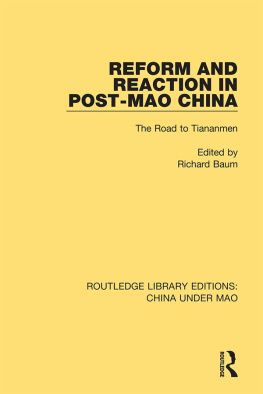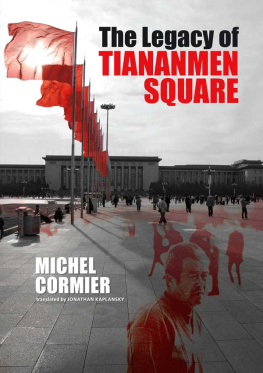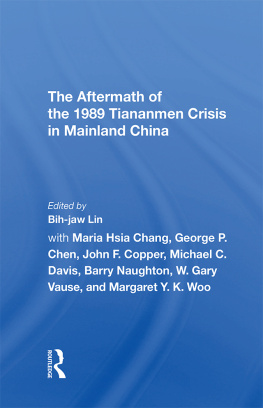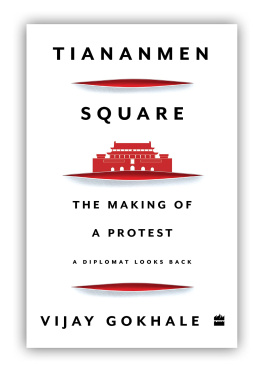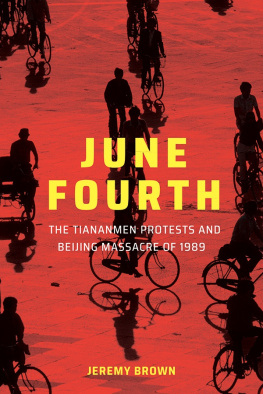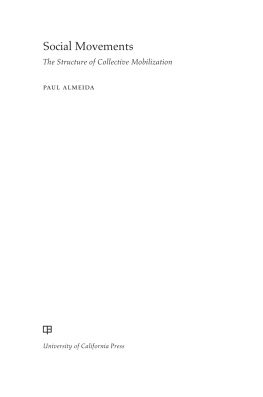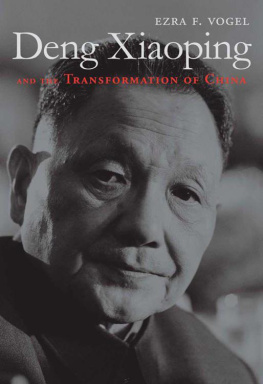Unintended Outcomes of Social Movements
Why did the 1989 Chinese student movement end in violent confrontation at Tiananmen Square, despite the fact that both the Chinese government and the students very much wanted to avoid violence? This puzzle, which lies at the heart of the tragic events at Tiananmen, is addressed here from a fresh perspective that sheds new light on these dramatic events.
Throughout Unintended Outcomes of Social Movements, Deng applies the formal methods of game theory to elucidate some of the contingent, strategic decision making by both sides in a social-movement/state confrontation, and how those decisions canand didlead to an unintended outcome. In identifying the underlying cause of the Tiananmen tragedy, namely a newly created social system with four highly specific properties, this book provides the first adequate explanation of the Tiananmen events. It therefore stands to make a significant stride toward convincing students of political conflict of the explanatory power of formal game theoretic models.
This book is an excellent source of reference for both undergraduate and postgraduate students in areas including Chinese politics, social movements, game theory economics, and social theory.
Fang Deng is Associate Professor in the department of Sociology at Bridgewater State College, US. Previous publications include Chinese translations of Game Theory and Economic Modeling by David M. Kreps (Oxford University Press, 1992) and Foundations of Social Theory by James S. Coleman (Harvard University Press, 1990).
International Library of Sociology
Founded by Karl Mannheim
Editor: John Urry, Lancaster University, UK
Recent publications in this series include:
Risk and Technological Culture
Towards a sociology of virulence
Joost Van Loon
Reconnecting Culture, Technology and Nature
Mike Michael
Advertising Myths
The strange half lives of images and commodities
Anne M. Cronin
Adorno on Popular Culture
Robert R. Witkin
Consuming the Caribbean
From Arawaks to Zombies
Mimi Sheller
Between Sex and Power
Family in the world, 19002000
Goran Therborn
States of Knowledge
The co-production of social science and social order
Sheila Jasanoff
After Method
Mess in social science research
John Law
Brands
Logos of the global economy
Celia Lury
The Culture of Exception
Sociology facing the camp
Blent Diken and Carsten Bagge Laustsen
Visual Worlds
John Hall, Blake Stimson, and Lisa Tamiris Becker
Time, Innovation and Mobilities
Travel in technological cultures
Peter Frank Peters
Complexity and Social Movements
Multitudes acting at the edge of chaos
Ian Welsh and Graeme Chesters
Qualitative Complexity
Ecology, cognitive processes and the re-emergence of structures in post-humanist social theory
Chris Jenks and John Smith
Theories of the Information Society, 3rd Edition
Frank Webster
Crime and Punishment in Contemporary Culture
Claire Grant
Mediating Nature
Nils Lindahl Elliot
Haunting the Knowledge Economy
Jane Kenway, Elizabeth Bullen, Johannah Fahey, and Simon Robb
Global Nomads
Techno and New Age as transnational countercultures in Ibiza and Goa
Anthony DAndrea
The Cinematic Tourist
Explorations in globalization, culture and resistance
Rodanthi Tzanelli
Non-Representational Theory
Space, politics, affect
Nigel Thrift
Urban Fears and Global Terrors
Citizenship, multicultures and belongings after 7/7
Victor J. Seidler
Forthcoming in the series:
Global China
Lash Scott, Keith Michael, Arnoldi Jakob, and Rooker Tyler
Stillness in a Mobile World
David Bissell and Gillian Fuller
Sociology through the Projector
Blent Diken and Carsten Bagge Laustsen
Multicultural Horizons
Diversity and the limits of the civil nation
Anne-Marie Fortier
Sound Moves
IPod culture and urban experience
Michael Bull
Jean Baudrillard
Fatal theories
David B. Clarke, Marcus A. Doel, William Merrin, and Richard G. Smith
Aeromobilities
Theory and method
Saulo Cwerner, Sven Kesselring, and John Urry
Social Transnationalism
Steffen Mau
Towards Relational Sociology
Nick Crossley
Unintended Outcomes of Social Movements
The 1989 Chinese student movement
Fang Deng
Revolt, Revolution, Critique
The paradox of society
Bulent Diken
First published 2011
by Routledge
2 Park Square, Milton Park, Abingdon, Oxon OX14 4RN
Simultaneously published in the USA and Canada
by Routledge
711 Third Avenue, New York, NY 10017
Routledge is an imprint of the Taylor & Francis Group
First issued in paperback 2012
2011 Fang Deng
The right of Fang Deng to be identified as author of this work has been asserted by him in accordance with the Copyright, Designs and Patent Act 1988.
Typeset in 10/13pt Sabon by
Book Now Ltd, London
All rights reserved. No part of this book may be reprinted or reproduced or utilized in any form or by any electronic, mechanical, or other means, now known or hereafter invented, including photocopying and recording, or in any information storage or retrieval system, without permission in writing from the publishers.
British Library Cataloguing in Publication Data
A catalogue record for this book is available from the British Library
Library of Congress Cataloging in Publication Data
Deng, Fang, 1949
Unintended outcomes of social movements: the 1989 Chinese student movement/by Fang Deng.
p. cm.
Includes bibliographical references and index.
1. ChinaHistoryTiananmen Square Incident, 1989 2. Student movementsChina. 3. Social movementsChina. 4. Game theory. I. Title.
DS779.32.D46 2010
951.05'8dc22
2010010436
ISBN: 9780415779333 (hbk)
ISBN: 978-0-415-82263-3 (pbk)
ISBN: 9780203868898 (ebk)
Are we going where we want to go? This is a question people may ask when they drive, and it is also a question that is often asked when people build societies and become involved in creating norms and social values, initiating status distributions, and dealing with social conflict, etc. Unintended outcomes or unexpected results occur when people are lost. Nowadays, digital technology has provided cars with GPS to guide us in getting where we want to go; but how do we choose the right way to go in constructing a better society? There is demand for a social GPS, and sociologists may be able to provide it. Social navigation will necessarily consist of many parts, and this book is intended to provide one of them, which relates to dealing with social conflict.


